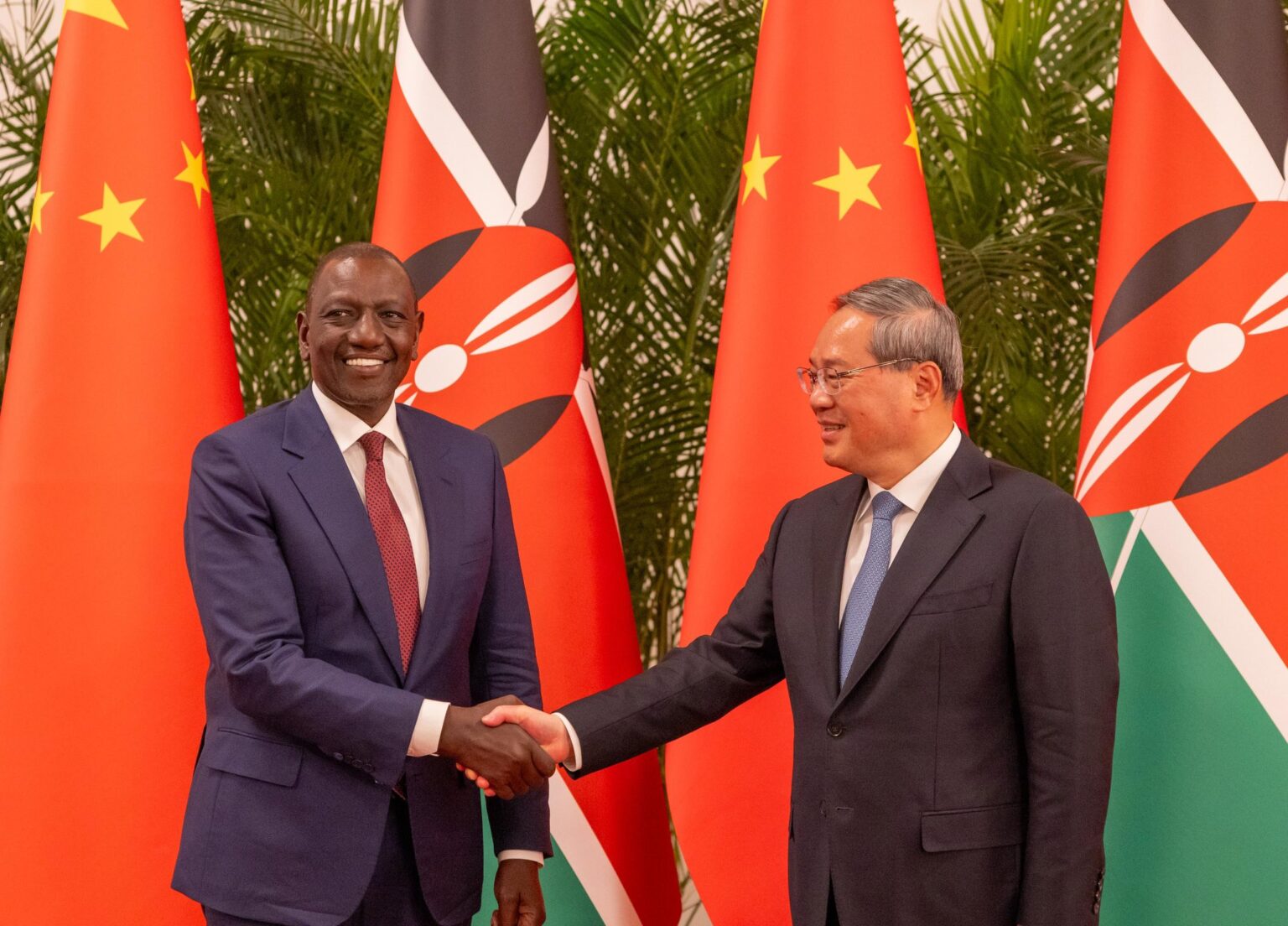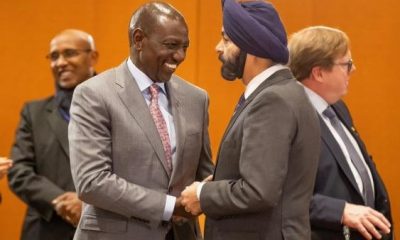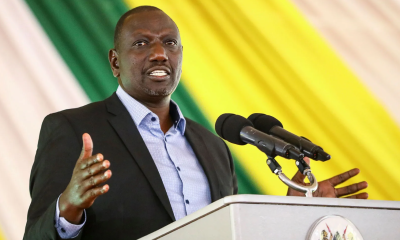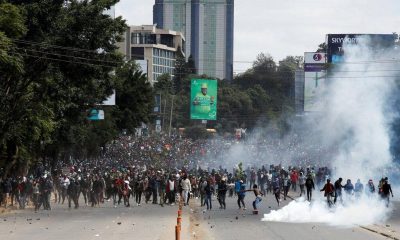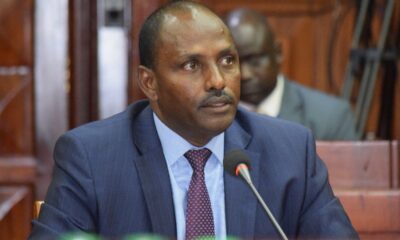Politics
Ruto in China: President Throws Shade at West While Treasury Officials Beg in Washington
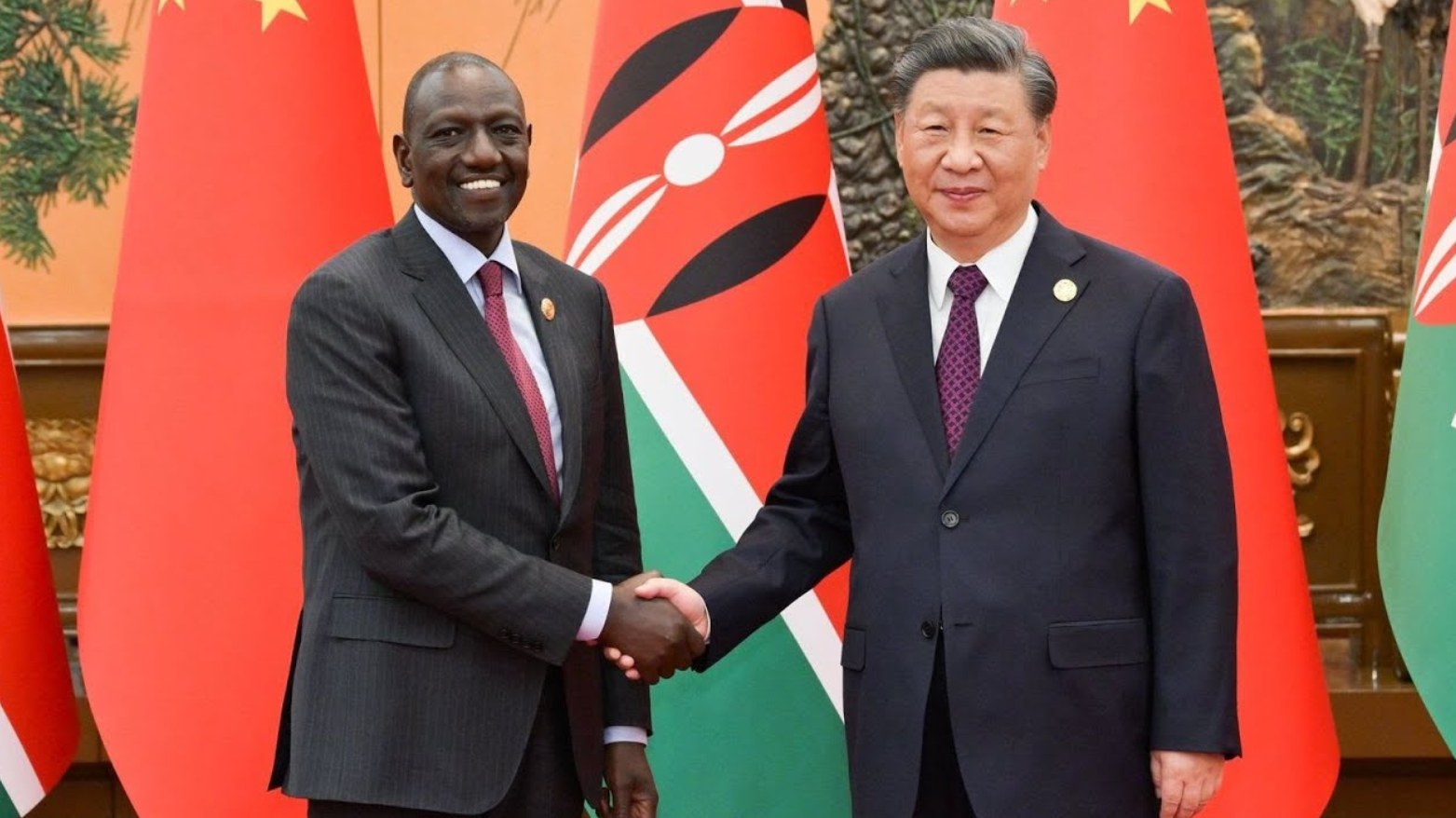
As President William Ruto took to the podium at Beijing’s prestigious Peking University, his words were fiery, deliberate, and clearly aimed at Western financial powerhouses.
From the heart of China’s capital, Ruto unleashed a scathing attack on the World Bank and the International Monetary Fund (IMF), calling them outdated institutions trapped in Cold War mindsets.
Yet, while Ruto threw punches from the East, his top Treasury officials were thousands of miles away in Washington D.C., quietly securing loans from the very institutions he condemned.
This contradiction raises tough questions. Was this a show of strength or a desperate act of diplomatic double-speak?
Ruto’s words may have made headlines, but the timing exposes a dangerous fault line in Kenya’s foreign policy—and a president playing both sides in a high-stakes economic gamble.
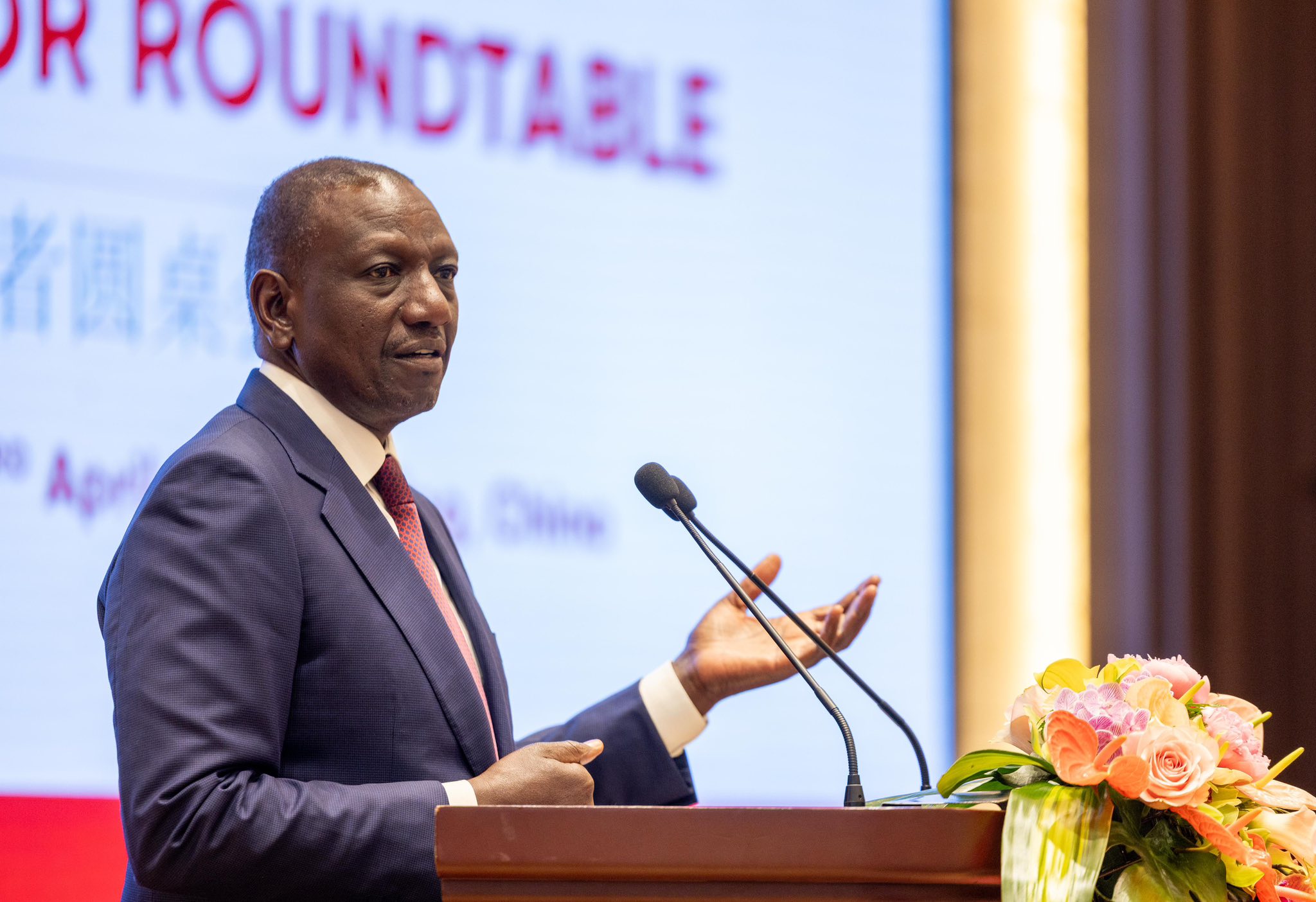
So while Ruto criticizes the IMF for its tough conditions, China’s lending model isn’t exactly benign. Beijing’s “debt diplomacy” has led to asset seizures in countries like Sri Lanka, raising fears of a similar fate in Kenya. [Photo: Courtesy]
Why Ruto Delivered A Speech That Reeks of Hypocrisy in China
In his lecture on April 24, 2025, President Ruto painted a bold vision for the Global South. He slammed the IMF and World Bank as “relics of a bygone era” that are “disconnected from the economic realities” of countries like Kenya.
He accused them of failing to evolve and offer real support in times of crisis, like the Covid-19 pandemic and the Russia-Ukraine war.
He didn’t stop there. Ruto attacked the contradictions in global trade—free market slogans undermined by tariffs, globalization crippled by protectionist policies.
His speech, laced with criticism of Western economic hypocrisy, was a clear nod to China and other Global South allies who’ve long challenged the dominance of Western-led institutions.
But while Ruto was busy scoring ideological points in Beijing, his Cabinet Secretary for National Treasury and Economic Planning, Prof. Njuguna Ndung’u, and a top delegation were in Washington D.C., sitting across the table from IMF and World Bank officials.
The mission? To negotiate more loans and secure Kenya’s financial lifeline. So which is it? Is Kenya rebelling against Western control or quietly extending its begging bowl under the table?
Beijing Optics, Washington Reality
President Ruto’s Beijing rhetoric may have thrilled students and academics, but it stands in stark contrast to the reality facing Kenya’s economy.
His government is grappling with ballooning debt, shrinking foreign reserves, and intense public pressure over high taxes and joblessness. For all his talk of reform, Ruto’s administration continues to rely heavily on the very institutions he claims to despise.
Since 2021, Kenya has signed onto multiple IMF programs, unlocking billions of dollars in concessional financing.
In April 2025 alone, the Kenyan delegation in Washington secured additional funding aimed at stabilizing the shilling and boosting social safety nets.
These are lifelines the country desperately needs, especially after the shocks of pandemic recovery and global inflation.
So why bash the IMF and World Bank while still cashing their cheques?
One reason may lie in Ruto’s calculated attempt to align himself with emerging multipolar politics. With China rising as a global counterweight to U.S. power, leaders like Ruto see an opportunity to hedge their bets.
By cozying up to Beijing while still maintaining Western ties, Kenya hopes to extract benefits from both camps. But that’s a dangerous tightrope—and one that risks alienating allies on both sides.
Understanding Ruto Speech in China: Debt Diplomacy or Diplomatic Disaster?
President Ruto’s Beijing trip was also packed with symbolism. From his tribute at Tiananmen Square to high-level meetings with Chinese officials, the message was clear: Kenya is deepening its ties with the East.
China remains one of Kenya’s biggest lenders, having financed massive infrastructure projects like the Standard Gauge Railway (SGR) and major highway upgrades.
But China’s loans haven’t come cheap. Many carry commercial terms, high interest rates, and strict conditions. Several projects funded by Beijing have underperformed or failed to generate expected revenue, further straining Kenya’s public finances.
At the same time, the country’s debt-to-GDP ratio has soared past 70%, prompting warnings from both domestic economists and global watchdogs.
So while Ruto criticizes the IMF for its tough conditions, China’s lending model isn’t exactly benign. Beijing’s “debt diplomacy” has led to asset seizures in countries like Sri Lanka, raising fears of a similar fate in Kenya.
By playing the U.S. and China against each other, Ruto may think he’s being strategic. But the more likely outcome is a country stretched too thin, unable to say no to anyone—yet beholden to everyone.
Kenya Deserves Coherence, Not Contradiction
President Ruto’s speech in Beijing was packed with passion, but it lacked one thing: honesty. Kenya cannot simultaneously vilify the IMF and World Bank while depending on their funding to survive. Nor can it blindly embrace China without learning from the costly lessons of others caught in its debt trap.
What Kenya needs is a consistent, coherent economic policy—one rooted in truth, not theatrics. Ruto’s government must decide: is it fighting for reform or just fighting for applause?
In Beijing, Ruto may have won a round in the global propaganda war. But back home, Kenyans are left to pay the price.
Kenya Insights allows guest blogging, if you want to be published on Kenya’s most authoritative and accurate blog, have an expose, news TIPS, story angles, human interest stories, drop us an email on [email protected] or via Telegram
-

 Investigations1 week ago
Investigations1 week agoBillions Stolen, Millions Laundered: How Minnesota’s COVID Fraud Exposed Cracks in Somali Remittance Networks
-

 News1 week ago
News1 week agoUS Moves to Seize Luxury Kenya Properties in Sh39 Billion Covid Fraud Scandal
-

 Investigations1 week ago
Investigations1 week agoJulius Mwale Throws Contractor Under the Bus in Court Amid Mounting Pressure From Indebted Partners
-

 News1 week ago
News1 week agoMAINGA CLINGS TO POWER: Kenya Railways Boss Defies Tenure Expiry Amid Corruption Storm and Court Battles
-

 Business2 days ago
Business2 days agoEastleigh Businessman Accused of Sh296 Million Theft, Money Laundering Scandal
-
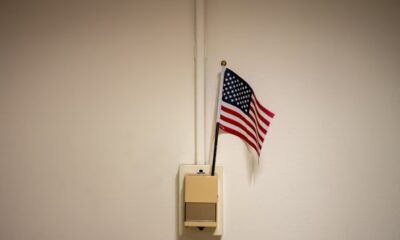
 Americas1 week ago
Americas1 week agoUS Govt Audits Cases Of Somali US Citizens For Potential Denaturalization
-

 Business2 days ago
Business2 days agoEXPLOSIVE: BBS Mall Owner Wants Gachagua Reprimanded After Linking Him To Money Laundering, Minnesota Fraud
-

 Business2 days ago
Business2 days agoMost Safaricom Customers Feel They’re Being Conned By Their Billing System

